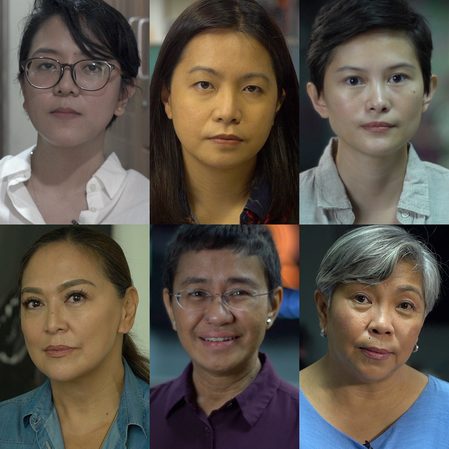[DECODED] The Philippines and Brazil have a lot in common. Online toxicity is one.
We both have high social media usage mired in toxicity against women. And troubled democracies.
I remember seeing a thread on X (formerly Twitter) three years ago comparing the Philippines and Brazil. It was a hilarious read covering specific similarities in food, culture, religion, history, and humor.
Melodramatic telenovelas? We both have it. Colonial past? Check. A vibrant LGBTQIA+ community? Yes, we share that, too. We even find similar things funny, often ending up with mirrored memes that cater to our unique sense of humor.
Outside of the X thread, one of the most striking similarities I found was that Filipinos and Brazilians both have high social media usage — above the worldwide average in 2024.
Sadly, our similarities with Brazil do not end there. What we discovered after months of working on a project that would assess the digital threats to women in public life in Brazil was that we share the same struggles, too.
We’ve seen it in the Philippines. We are seeing it again in Brazil: women leaders and journalists are continuously being attacked online, a telltale sign of democratic backsliding.
Patterns of gendered attacks, disinformation
We from The Nerve, a Manila-based data consultancy firm, studied over one million social media posts for the report published by global initiative #ShePersisted titled, “Big Tech and The Weaponization of Misogyny in the Brazil Online Ecosystem.”
The report is composed of a forensic dive into social media discussions and a nationally representative public opinion survey in Brazil to assess digital threats to women in public life in Brazil, including politicians and journalists.
Our findings were striking: gendered disinformation, or the deliberate spread of false information designed to damage reputations, is still being widely used by social media networks to attack high-profile Brazilian women who dare to criticize men in power.
Among the common themes of gendered attacks in the Brazilian digital landscape include casting doubt on women’s abilities (e.g. qualifications and intelligence), their morality or sexuality, and their loyalty or patriotism (e.g. accusing them as “traitors” to the country or as “communists”).

Sounds familiar? We in the Philippines have a term for it: red-tagging.
Filipino leaders and journalists have faced accusations of being “communists” just because they dare to oppose the government. We exposed that police pages and other government entities were behind some of these attacks.
Mirroring the playbook of authoritarian leaders
There’s also another similarity we share with Brazil that’s obvious to many: having populists as former presidents. The Philippines had Rodrigo Duerte, and Brazil had Jair Bolsonaro. They both ruled with macho politics.
It came as no surprise that the online gendered attacks we found in Brazil were most prevalent during Bolsonaro’s term, which lasted from 2019 to 2022. Bolsonaro lost by a narrow margin to Luiz Inacio Lula da Silva in the 2022 Brazilian elections — a loss that prompted his party to contest the results and his supporters to incite a nationwide election denial movement.

We found that the gendered attacks in Brazil were driven by pro-authoritarian groups and actors promoting anti-rights ideologies, which were seeded into existing right-wing communities that supported Bolsonaro.
Sometimes, these attacks would infiltrate non-political communities, including religious, cultural, and lifestyle groups. One tactic is for pro-authoritarian networks to drive the gendered attacks by exploiting religion to sow division, undermine the reputation of women in authority positions, and, as result, expand these networks’ reach.

Remember the Philippines’ DDS (diehard Duterte supporter) and Marcos networks? Brazil has pro-Bolsonaro networks, too. They utilize the same information operations tactics employed by authoritarian leaders such as in Russia and the Philippines, where disinformation is spread against critics of an autocratic government using existing hyperpartisan communities to sway public opinion, erode public trust, and reinforce the authority of autocrats.
The X thread said Brazil and the Philippines are both “batshit insane” when it comes to fandoms. With these findings, we can say that this applies to political fandoms, too.
Continuous process of undermining democracy
Bolsonaro is no longer president, and he’s even barred from running for office until 2030. Yet, the social media networks formed during his administration remain. The right-wing networks from Bolsonaro’s presidency persist, and have become an online watering hole for conservatives and anti-feminists.
Here in the Philippines, we also know that Duterte is no longer in office. Yet, we still see pro-Duterte networks participating in current issues, such as our maritime disputes with China.
It becomes more tricky when the existing guardrails, such as fact-checking, appear to be no longer working. In analyzing the social media posts, we found that disinformation narratives against Brazilian women persisted online even after being debunked by fact-checkers — indicating coordinated efforts to keep the lies alive.
This is where platform accountability should come in because, ultimately, these gendered attacks are found on their services. If the data shows that content moderation is not enough to squash these hateful narratives, then there is a clear need for proactive policies that will protect its users. Unfortunately, this remains a significant challenge shared all over the world — especially with the rise of generative AI.
What should be done?
#ShePersisted proposed: “A concerted and coordinated whole-of-society effort is needed to bolster a rights-based approach to information integrity.”
What it means is that we continue to report on these issues for awareness and continue to debunk false claims. But we don’t stop there. We also involve other stakeholders in the battle for facts, and together we hold both the Big Tech and the online perpetrators accountable. We are already trying to do this in the Philippines with #FactsFirstPH.
It can also be done in Brazil — especially since #ShePersisted’s survey found that a large majority of Brazilian voters care about gendered disinformation, with 79% being “concerned” or “very concerned” about how women are depicted on social media. This figure rises to 85% after exposure to educational messages highlighting possible negative impacts on democracy, online harassment, and exploitation of women and girls.
“Weaponizing social media against women leaders with gendered disinformation and hate is one of the most effective mechanisms deployed to erode democratic institutions, divide social groups, exercise foreign influence, and support the growth of transnational far-right movements,” #ShePersisted said in the study. – Rappler.com
Decoded is a Rappler series that explores the challenges and opportunities that come with living in transformative times. It is produced by The Nerve, a Manila-based consultancy specializing in analyzing data to produce powerful insights and narratives. Composed of a team of data scientists, business strategists, award-winning storytellers, and designers, the company is on a mission to transform data science into data relevance.
#ShePersisted’s study on Brazil is part of a project aimed at creating strategic communications approaches to combating gendered disinformation. It also conducted similar research on Moldova and the digital threats faced by its women leaders. Go here to access the full reports.


